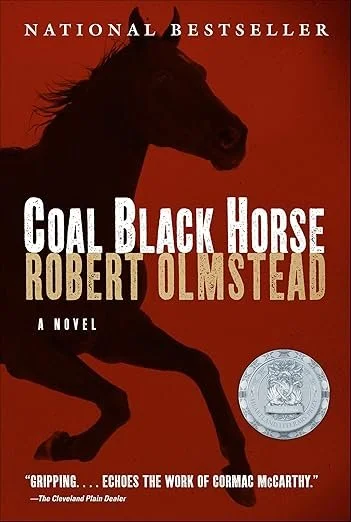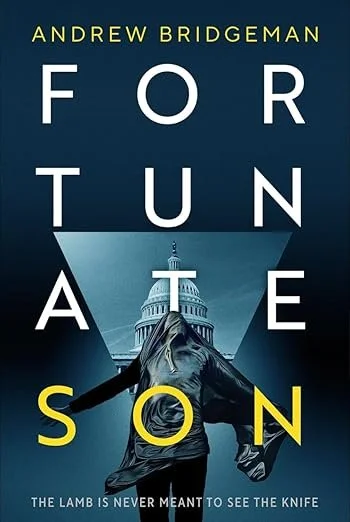The Promise on Page One…
I've been thinking about first pages lately.
Not just as a writer staring at my own, wondering if they're working. But as a reader, too. That moment when I crack open a new book and decide—usually within a page or two—whether it’s for me.
You do the same thing.
Here’s What I’m Not Looking For
I’m not looking for flashy prose. I don’t want an author trying to impress me with their vocabulary—instead, how about some smart dialogue?
I’m also not looking for much out of the first sentence. Personally, I don’t think it’s worth getting all worked up about. But I am paying very close attention to the first few paragraphs.
I’m not looking for immediate action. I don’t need a body dropping on the first page. What I need is a competent narrative voice and a hint at the central tension that will drive the story forward.
As a writer, I think about this constantly.
When Every Detail Earns Its Place
Here’s the opening of Ken Follett's The Pillars of the Earth:
"The small boys came early to the hanging."
"It was still dark when the first three or four of them sidled out of the hovels, quiet as cats in their felt boots. A thin layer of fresh snow covered the little town like a new coat of paint, and theirs were the first footprints to blemish its perfect surface. They picked their way through the huddled wooden huts and along the streets of frozen mud to the silent marketplace, where the gallows stood waiting."
Here’s what I notice:
I'm in the story immediately. That first sentence drops me right in. No preamble. The hanging is coming, and small boys are going to watch it. Seriously, eight words and I’m absolutely hooked.
Then Follett slows down… just enough. The second paragraph gives me the world—dark, cold, medieval. I can see the snow, feel the silence, watch these boys moving through empty streets. Every detail works. Felt boots (not just boots). Fresh snow like new paint. Frozen mud. These aren't random details—they're building a specific time and place.
Follett is showing me how he’s going to tell this story and it won’t be all action.
Small boys. Dark. Silent. And the gallows waiting. The contrast between the innocence of fresh snow and what's about to happen. We have a pretty good idea that his book is going to show us beauty and brutality side by side.
What I think he’s telling me? “I'll make you see this world, and I'll give you time to feel it, but we're not lingering—strap in, this story is going to move.
Over 1,000 pages, he delivered exactly that.
When Landscape Becomes Everything
Now consider Robert Olmstead opening to his brilliant novel, Coal Black Horse:
"The evening of Sunday May 10 in the year 1863, Hettie Childs called her son, Robey, to the house from the old fields where he walked the high meadow along the fence lines where the cattle grazed, licking shoots of new spring grass that grew in the mowing on the edge of the pasture."
Fifty-eight words in one sentence.
Same genre—historical fiction. Also a brilliant book. But it's making an entirely different promise.
The prose asks us to slow down. Follett gives us atmospheric details while moving us toward the gallows. Olmstead isn't moving us anywhere yet—he's rooting us in place. The rhythm is biblical—clause building on clause, accumulating terrain.
Old fields, high meadow, fence lines, cattle grazing, shoots of new spring grass, mowing, edge of pasture. Follett uses details to move us through space. Olmstead uses them to make us feel the land as character.
Where Follett moves with purpose toward an event (the hanging), Robey is walking fence lines, watching cattle graze. One promises external drama, the other promises rootedness—a world measured in seasons and labor.
It too is cinematic, just done differently. Follett gives us a tracking shot following boys through snowy streets toward the gallows. Olmstead gives us a slow pan across a meadow at golden hour—a mother calling, a boy turning from the far pasture.
Both put me "in" the story immediately. I trust that in both novels I won’t struggle to ‘see.’ I can tell from jump that these will both be 4k surround-sound reading experiences.
One says "trust me to keep moving while making you feel the world." The other says "trust me to make you settle so deeply into this place that you'll never forget it."
What about my debut thriller? What was the promise? Did I pull it off?
Here’s the opening paragraph of my debut thriller, Fortunate Son:
"Arnau Farre took a long drag on his cigarette. He blew a trail of smoke through the cracked window of his dented brown Chevette, then flicked the butt off his finger, watching it bounce and spark against the icy asphalt. He was glad to be alone. Glad to have time to think. But he wasn't happy. Far from it."
Don’t get me wrong. This is NOT about putting my writing in the same company as Follett or Olmstead—those are literary giants and I'm certainly not.
It’s been a few years since I finished that novel. Looking back, I can see what I was trying to promise even though, at the time, I might not have been thinking as intentionally about it as I do now.
I wanted to signal to readers that they were in good hands with this thriller but I also wanted to set an expectation about how I would tell the story. There was a reason I chose not to start BIG. Fortunate Son builds tension more slowly than many contemporary thrillers—this is not an explosion-per-page novel.
Instead I wanted to signal to the reader that this was a character-driven thriller where tension builds through choices and consequences—saying, "If you trust me, I'll make you care about the people in this novel and what happens to them will matter—and the payoff will be richer for it.”
That was my intention, anyway.
Why First Pages Matter
I can usually tell within a page or two whether I'll finish a book.
Not because I'm judging quality, but because I'm sensing whether the promise (intended or not) matches what I'm hungry for right now.
Sometimes a book is beautifully written and I still set it down. Not because it failed, but because it promised something I wasn't prepared to receive in that moment.
And that's okay.
The goal isn't to appeal to everyone. It's to make a clear promise and then keep it.
When I'm writing, I go back to those opening pages obsessively. I read them cold and ask: What am I promising here?
Trust isn't earned in the climax.
It's earned in the first 300 words, when you make a promise and then—page after page after page—prove you meant it.
Do you know within the first page whether you'll finish a book? Have you ever discovered an author that you knew exactly what they were doing even when the start felt slow?





